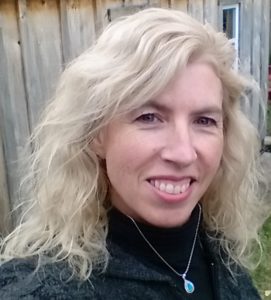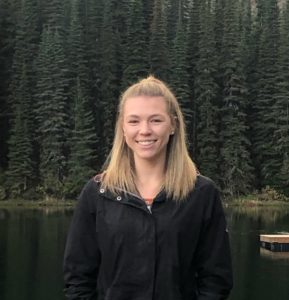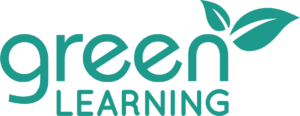From the Individual to the System
Reflections on youth awareness of climate solutions (and what teachers can do to help)
Reflections on youth awareness of climate solutions (and what teachers can do to help)
Delivering life-saving sanitation through awesome virtual travel!
Presenter: Karen Lai
Originally aired: February 18, 2021
Inclusion is a complex word and it is filled with different layers and meanings. This webinar will focus on the implementation of inclusion. It will include some strategies for working with the complexity of inclusion as well as the challenges and the opportunities it presents. Karen will create the space for people to be vulnerable and curious to share with one another. There will also be opportunities for people to enter into breakout room groups and share their voices through the chatbox.
Along with being the Accessibility Planner for the City of Vancouver, Karen Lai is an Inclusion and Accessibility Consultant through which she facilitates inclusion training for companies, educators, organizations, and other special interest groups. Karen completed her undergraduate degree in outdoor recreation and her master’s in human kinetics with a focus on examining the social theories of inclusion. Karen lives with cerebral palsy and loves to get out to play in the outdoors. Learn more at https://www.inclusionaccessibility.com/.
This webinar is presented in partnership with the Columbia Basin Environmental Education Network (CBEEN), Take Me Outside (TMO), and Classrooms to Communities (C2C).
Presenters: Sidney Howlett and Cheryl Evans
Originally aired: February 10th, 2021; 7:30-8:30 p.m. EST; 4:30-5:30 p.m. PST
 Did you know that flooding is the most common natural disaster in Canada? And yet, many are not prepared to protect against the impacts of extreme weather events such as floods, which are often caused by climate change. When it comes to flood protection, we can learn how to plan, take action, and record impact! In this webinar, we will be taking a deep dive into the Flood:Ed program — an exciting challenge for students that offers hands-on learning about flood planning and resilience. Join us in discussing the impacts of flooding both at home and school while exploring ways to stay protected!
Did you know that flooding is the most common natural disaster in Canada? And yet, many are not prepared to protect against the impacts of extreme weather events such as floods, which are often caused by climate change. When it comes to flood protection, we can learn how to plan, take action, and record impact! In this webinar, we will be taking a deep dive into the Flood:Ed program — an exciting challenge for students that offers hands-on learning about flood planning and resilience. Join us in discussing the impacts of flooding both at home and school while exploring ways to stay protected!
Cheryl Evans is the Director of Home Flood Protection at the Intact Centre on Climate Adaptation at the University of Waterloo. Cheryl has over 20 years of community engagement and program management experience in the fields of stormwater management, flood risk mitigation, home energy conservation, and youth environmental education. She served as a technical committee member on CSA’s Guideline on Basement Flood Protection and Risk Reduction (CSA Z800) and was a lead curriculum developer for the Ontario College’s Flood Risk Assessment Training Program. Cheryl holds a B.E.S. in Environment & Resource Studies from the University of Waterloo.

Sidney Howlett is a former Ontario French immersion teacher, who focused primarily on inquiry-based learning and incorporating coding and robotics into the classroom. Prior to joining the team at GreenLearning, Sidney worked at a local art gallery and museum where she established new programs, including an outdoor art education program for homeschool students. She currently serves as a member of the Bee City Kitchener Committee and holds a B.A.Sc and a B.Ed from Lakehead University.
This webinar is presented in partnership with GreenLearning.

Presenters: J.P. Jepp, Dale Beugin, James Harper, and Sidney Howlett
Originally aired: February 17, 2021
What role does policy play in combating climate change and how can we empower our students to take action on these issues? Join GreenLearning’s expert panel as they discuss climate change policy in Canada and around the world. They will provide practical resources as well as programs and strategies for teaching youth about climate change and empowering them to take action.
J.P. Jepp has experience leading climate and energy policy strategy in the petroleum sector, the electricity sector, and for an environmental NGO. He was also Senior Advisor to the federal Minister of Environment and Climate Change as the federal government developed the Pan-Canadian Framework on Clean Growth and Climate Change, Canada’s national climate change strategy. He is Principal of Nexus Climate and Energy Solutions — a consultancy focused on climate change and energy transitions.
Mihskakwan James Harper is from Sturgeon Lake Cree Nation in Treaty 8, Alberta. He graduated from the University of Manitoba with a Bachelor of Science in Mechanical Engineering and is currently pursuing a Master of Science in Renewable Energy from KTH Royal Institute of Technology and Ècole Polytechnique, with entrepreneurial training from ESADE Business School. He is passionate about the carbon-free future, particularly within the power and mobility sectors. He loves his family and his community now and generations ahead, which inspires him to work with youth to build a future that is sustainable and empowers all.
Dale Beugin the Vice President, Research and Analysis at the Canadian Institute for Climate Choices, an independent policy research Institute focused on climate change mitigation, adaptation, and clean growth. He is an expert in climate change policy and economics. Dale has previously worked as both Executive Director and Research Director of Canada’s Ecofiscal Commission, as an independent consultant providing analysis and advice to governments and organizations across Canada and internationally, and as policy advisor with the National Round Table on the Environment and the Economy. He holds a master’s degree in resource and environmental management, with a specialization in energy-economy modelling, and an undergraduate degree in mechanical engineering.
Sidney Howlett is a former Ontario French immersion teacher, who focused primarily on inquiry-based learning and incorporating coding and robotics into the classroom. Prior to joining the team at GreenLearning, Sidney worked at a local art gallery and museum where she established new programs, including an outdoor art education program for homeschool students. She currently serves as a member of the Bee City Kitchener Committee and holds a B.A.Sc and a B.Ed from Lakehead University.
This webinar is presented in partnership with GreenLearning.

Presenter: Rachel Salt
Originally aired: February 3rd, 2021
Join author Rachel Salt, as she discusses her two recently-published books, The Plastic Problem and Your Plastic Footprint. Though plastic has numerous benefits, our reliance on this
sturdy, light, and flexible material, paired with its longevity and our changing consumer habits means we’ve created a real plastic problem. However, there are reasons to be hopeful! This webinar will investigate the many meaningful and creative ways people around the world are working to manage, reduce and eliminate plastic waste, while providing ideas for classroom activities that can be taught virtually.
Rachel Salt is a science communicator who is very curious about how we can all reduce plastic pollution. She is the author of The Plastic Problem and Your Plastic Footprint. She has a master’s degree in Environmental Biology. Rachel lives in Hamilton, Ontario with her husband and son.
Presenter: Rachel Salt
Originally aired: February 3rd, 2021
Join author Rachel Salt, as she discusses her two recently-published books, The Plastic Problem and Your Plastic Footprint. Though plastic has numerous benefits, our reliance on this
sturdy, light, and flexible material, paired with its longevity and our changing consumer habits means we’ve created a real plastic problem. However, there are reasons to be hopeful! This webinar will investigate the many meaningful and creative ways people around the world are working to manage, reduce and eliminate plastic waste, while providing ideas for classroom activities that can be taught virtually.
Rachel Salt is a science communicator who is very curious about how we can all reduce plastic pollution. She is the author of The Plastic Problem and Your Plastic Footprint. She has a master’s degree in Environmental Biology. Rachel lives in Hamilton, Ontario with her husband and son.
Linen Theme by The Theme Foundry
Copyright © 2024 Green Teacher. All rights reserved.